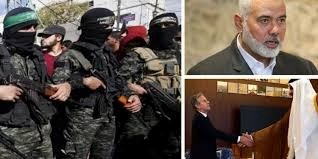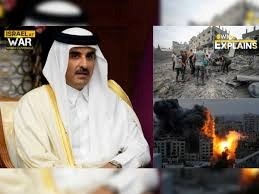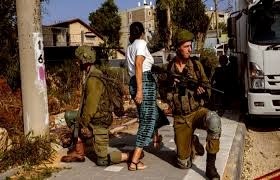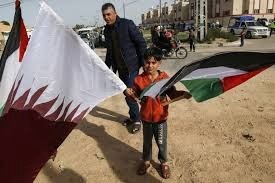Qatar, a nation nestled in the Persian Gulf, has emerged as a pivotal player in the ongoing conflict between Israel and Hamas in the Gaza Strip. Famed for its substantial natural gas reserves and global ambitions, Qatar has assumed a central role by actively mediating negotiations and offering humanitarian aid in the aftermath of recent hostilities. Despite its relatively small size, the country’s wealth and diplomatic influence have positioned it as a key intermediary, engaging in delicate talks with both Hamas and Israeli authorities. As Qatar navigates this complex diplomatic landscape, its actions draw attention, raising questions about the effectiveness of its mediating role and the broader implications for regional stability.
Humanitarian Efforts and Hostage Negotiations
Qatar’s role in the release of hostages held by Hamas has raised concerns and skepticism about the nation’s true intentions. Acting as an intermediary in talks between Hamas and Israeli authorities, Qatar’s involvement has been viewed with suspicion by some international observers. The delicate process, while resulting in the liberation of some hostages, has also been met with criticism due to Qatar’s historical ties with Hamas, a group designated as a terrorist organization by the U.S. government. The intricate negotiations have led to questions about Qatar’s impartiality and whether its actions genuinely contribute to lasting peace in the region or if they serve other undisclosed interests.
Qatar’s purported unique position as a mediator in the Israel-Hamas conflict has sparked skepticism among critics who question the sincerity of its role. While some international observers have praised Qatar for its ability to communicate effectively with both parties, concerns linger about the nation’s impartiality. Jonathan Panikoff’s assertion that Qatar is the sole government capable of engaging with both Hamas and Israel on humanitarian issues has been met with skepticism.
Critics argue that Qatar’s historical ties with Hamas raise doubts about its neutrality in the negotiation process, as Hamas is designated as a terrorist organization by the U.S. government. The notion that Qatar is the only viable mediator has been challenged, with some suggesting that a more objective and unbiased intermediary could better serve the goal of achieving a lasting and fair resolution to the conflict.
Diplomatic Relations and Controversies
Qatar’s involvement in the Gaza hostage discussions has drawn significant criticism, primarily due to its longstanding and well-documented ties with Hamas, an organization designated as a terrorist group by the U.S. government. The fact that Qatar hosts a political office for Hamas in its capital, Doha, and serves as a refuge for senior Hamas leaders in exile,
including figures like Khalid Mashaal and Ismail Haniyeh, raises serious concerns about the nation’s impartiality in mediating the conflict. The U.S. sanctions imposed on individuals associated with Hamas underscore the international community’s reservations regarding Qatar’s relationships. Additionally, Qatar’s financial support for Gaza, initially intended for humanitarian purposes, has become a contentious issue, especially in the aftermath of the October 7th events, exposing the complexities and potential shortcomings of Qatar’s approach to the situation.



Qatar’s Global Image and Ambitions
Qatar’s engagement in international conflicts, particularly its role in hostage negotiations and peace talks, has been criticized as motivated more by a desire for prestige than genuine humanitarian concerns. Led by Emir Sheikh Tamim bin Hamad Al Thani, Qatar’s ambitious pursuit of a significant role on the global stage has been questioned for its potential self-serving nature. According to Bruce Riedel of the Brookings Institution, Qatar’s involvement in the quest for prestige. Critics argue that the nation, with its immense wealth, substantial natural resources, and the influential platform of Al Jazeera, is leveraging its resources to elevate its international standing rather than addressing the conflict with a sincere commitment to fostering lasting peace. This perspective raises doubts about the altruism of Qatar’s diplomatic endeavors and suggests that its actions may be more about enhancing its geopolitical influence than genuinely contributing to resolving regional conflicts.
In conclusion, Qatar’s involvement in the Gaza conflict raises intricate questions about the nation’s diplomatic pursuits, marked by a complex intersection of controversy and global aspirations. The skepticism surrounding Qatar’s role stems from concerns about its historical ties with Hamas, a designated terrorist
organization, and its potential pursuit of geopolitical influence rather than a genuine commitment to fostering regional stability. As the nation endeavors to navigate the intricate dynamics of the conflict, doubts persist regarding the effectiveness of its approach.
Critics argue that Qatar’s actions may exacerbate tensions rather than contribute to a sustainable resolution, and the broader implications for regional stability remain uncertain. The nuanced nature of Qatar’s involvement invites ongoing scrutiny, prompting a closer examination of its motives and the impact of its diplomatic efforts on the volatile situation in the Gaza Strip.



